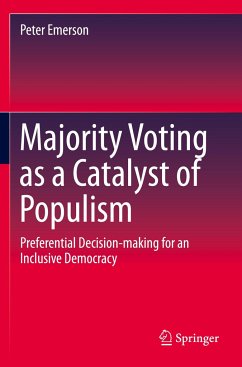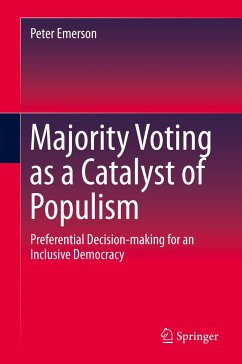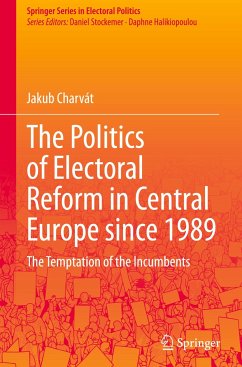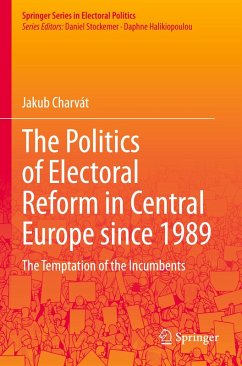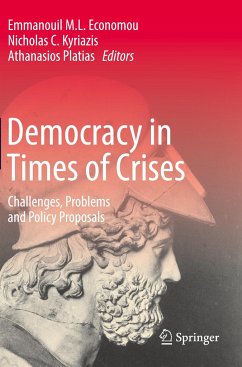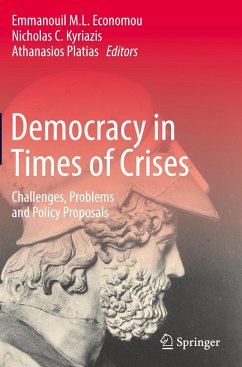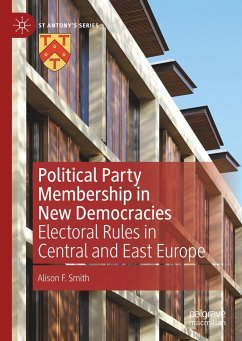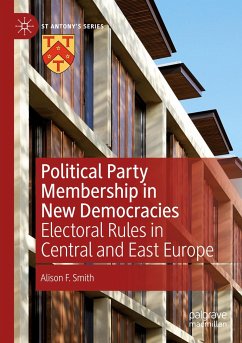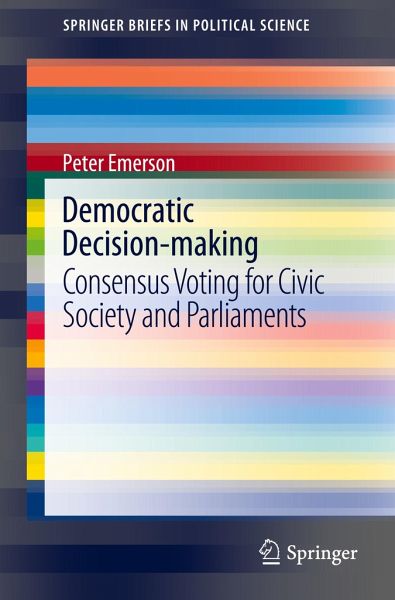
Democratic Decision-making
Consensus Voting for Civic Society and Parliaments

PAYBACK Punkte
19 °P sammeln!
This book provides a practical guide to how groups of people, everywhere, from the local village council to the United Nations Security Council, can best make collective decisions. By comparing the many voting procedures used in democratic decision-making, it explains why win-or-lose binary voting can be inaccurate and divisive, while the more inclusive preferential points system of voting can be so much more accurate and, therefore, more democratic; indeed, it is a win-win methodology. The text, essential reading for anyone interested in fair and participatory collective decision-making, also...
This book provides a practical guide to how groups of people, everywhere, from the local village council to the United Nations Security Council, can best make collective decisions. By comparing the many voting procedures used in democratic decision-making, it explains why win-or-lose binary voting can be inaccurate and divisive, while the more inclusive preferential points system of voting can be so much more accurate and, therefore, more democratic; indeed, it is a win-win methodology. The text, essential reading for anyone interested in fair and participatory collective decision-making, also compares the most common electoral systems.





